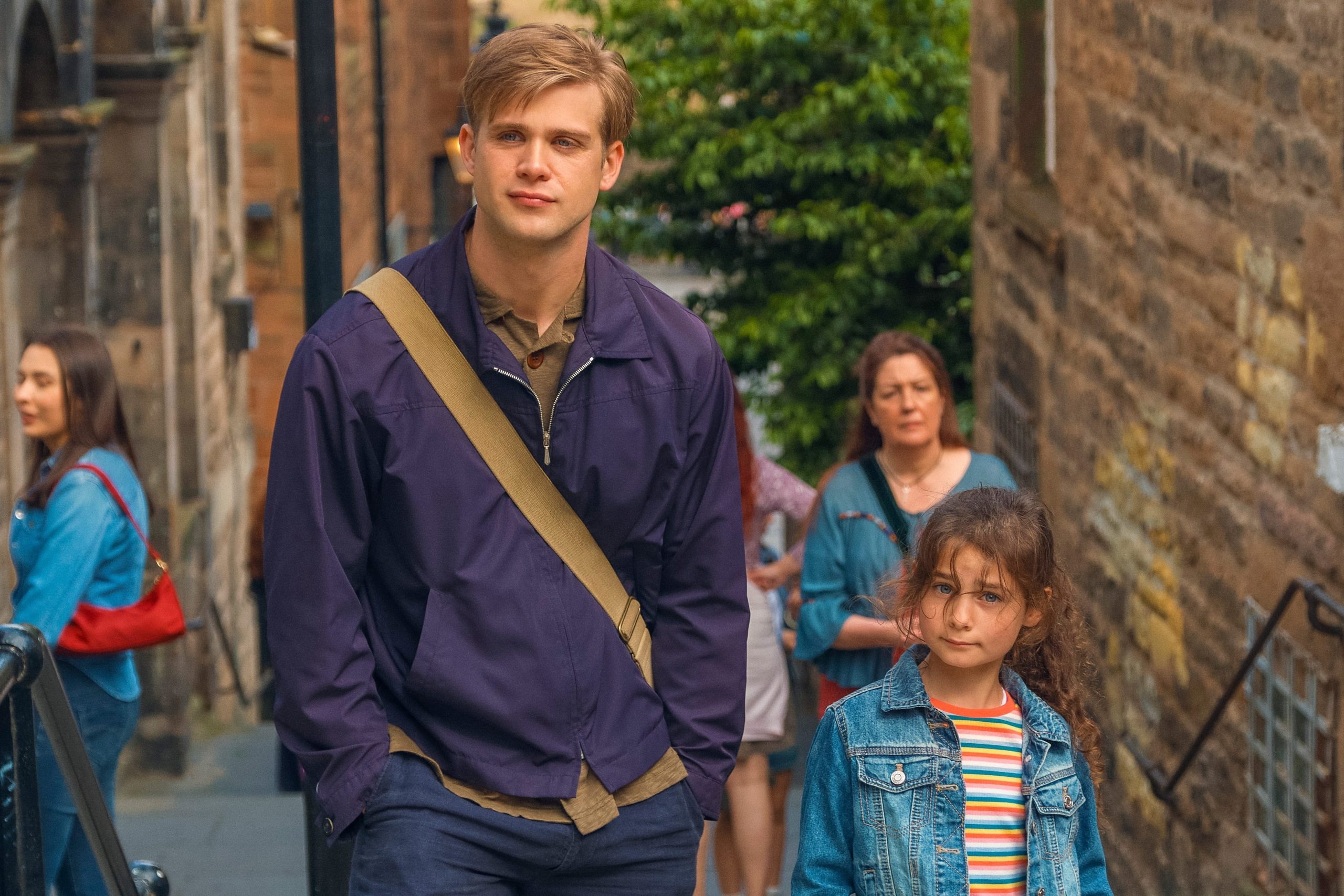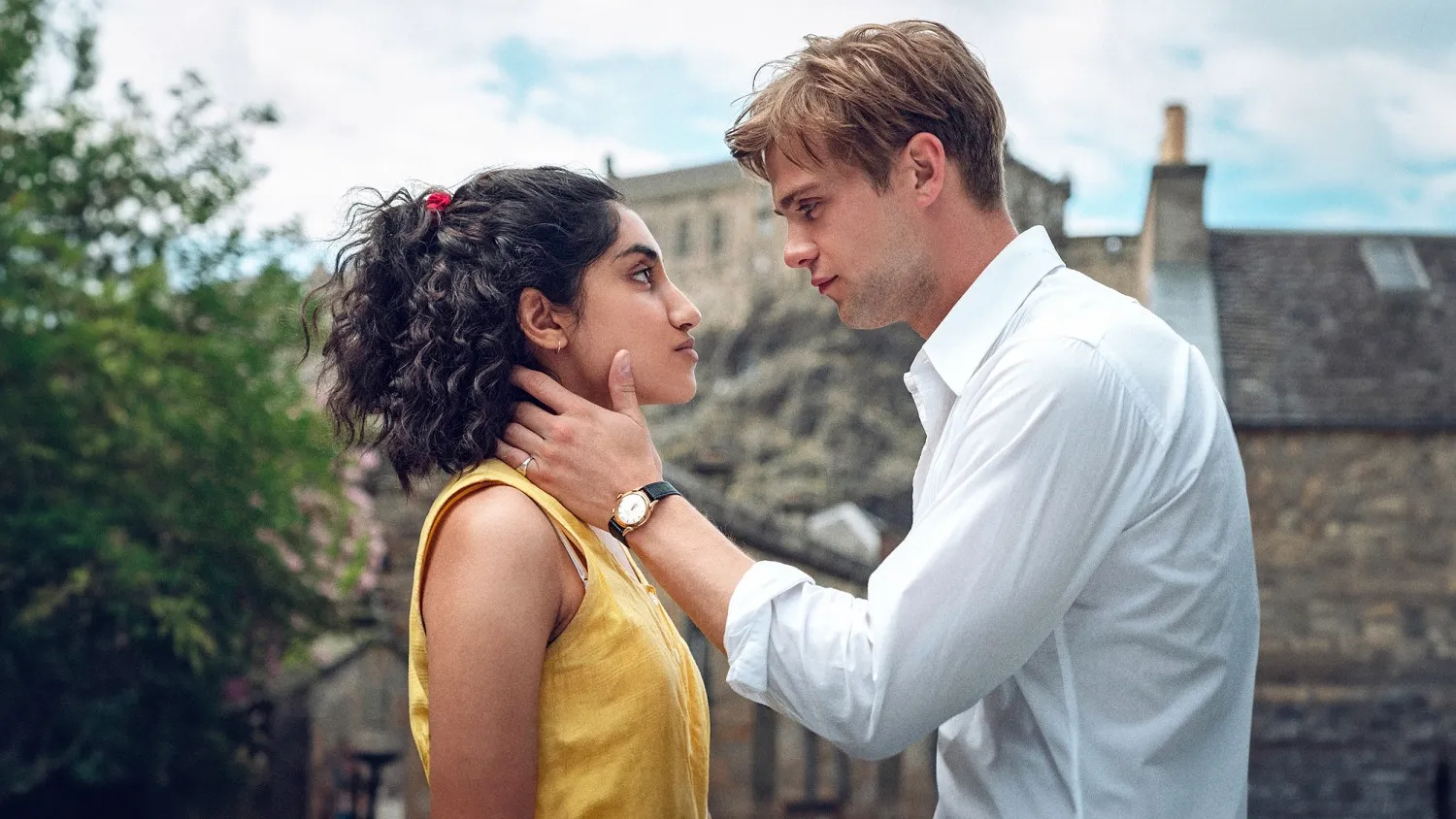Netflix’s adaptation of One Day marks the second time David Nicholls’ cherished novel has been brought to the screen, following the 2011 film starring Anne Hathaway and Jim Sturgess.
Unlike the movie, which condensed the storyline into a single feature-length runtime, this new series expands the tale across 14 episodes. This extended format allows Emma and Dexter’s journey to be told at a more measured pace, allowing viewers to develop a deeper connection with the characters.
The story remains unchanged at its core. Emma, played by Ambika Mod, and Dexter, portrayed by Leo Woodall, cross paths on the day of their graduation from the University of Edinburgh.

They spend the night talking and bonding, forming an instant but unexpected connection. Although they go their separate ways the next morning, they agree to reconnect on the same date the following year.
This tradition continues over the years, with each episode unfolding on July 15, spanning from the late 1980s to the early 2000s, as their friendship takes different turns.
Challenges in Emma and Dexter’s Relationship
Emma and Dexter’s lives outside these annual meetings remain mostly unseen, but their journey is not without obstacles. Dexter’s reckless lifestyle and self-destructive tendencies prevent them from forming a romantic relationship sooner.
As the years pass, Dexter gradually matures, eventually marrying Sylvie and becoming a father. However, his marriage ends in divorce, and during a reunion with Emma in Paris, he finds himself at a crossroads—just as she begins a relationship with Jean-Pierre.
Realizing without a doubt that Emma is the person he truly loves, Dexter confesses his feelings, and the two finally come together.
Emma’s Fate
After marrying Dexter, Emma looks ahead to their future and expresses her desire to have a child. However, tragedy strikes in the penultimate episode set in 2000. While cycling to meet Dexter for a house viewing, she is struck by a car and loses her life.
For those unfamiliar with the novel or the 2011 film, this moment is devastating. The emotional weight is amplified by the audience’s connection to Ambika Mod, developed over 13 episodes. Even the show’s lead writer, Nicole Taylor, admitted that she considered changing the ending.
“I didn’t want to do that to her because I love her,” she told The Wrap. “Everyone who has read the book remembers exactly how they felt when they reached that part. It makes you want to throw the book across the room.”
Despite the temptation to alter the story, Taylor ultimately recognized that the original conclusion was deeply woven into the structure and meaning of the work. “The story carries its own thematic and structural integrity,” she explained. ”
Altering the ending would have felt unnecessary and diminished the impact of the entire piece. It was important to reflect on it deeply, question it, and not simply accept it as a given, but in the end, it felt right to stay true to the original.”
Dexter’s Journey After Emma’s Death
Struggling to cope with his grief, Dexter finds himself spiraling back into destructive habits, neglecting his responsibilities as a father and seeking solace in alcohol. His downward spiral reaches a breaking point when he appears on his ex-wife Sylvie’s doorstep in a state of distress, both physically and emotionally.

Concerned for his well-being, his father steps in, reminding him to live as though Emma were still with him. The series finale fast-forwards to July 15, 2003, marking two years since Emma’s passing. Dexter, now living in a new apartment, is making conscious efforts to rebuild his life.
He receives visits from old friends, including Tilly, his father, and even Jean-Pierre, who reassures him of how deeply Emma loves him. The closing moments return to where it all began—Edinburgh.
Dexter walks through the city with his daughter, Jasmine, reminiscing about his first encounter with Emma and their very first kiss. A montage follows, replaying every kiss they shared, serving as a poignant reminder that love and grief are deeply intertwined.



